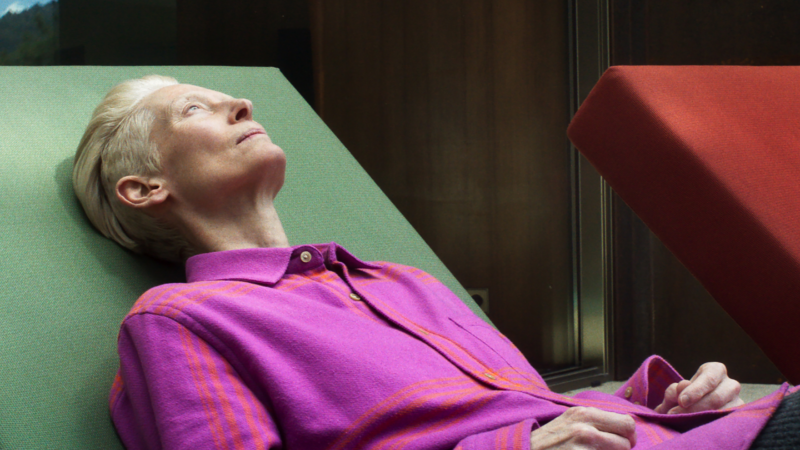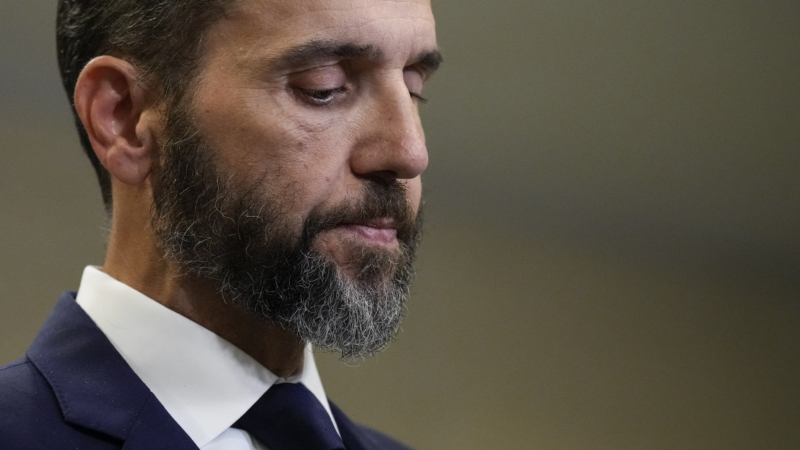How sweet! A daily dose of dark chocolate may cut your risk of diabetes
The idea that eating cocoa-rich, dark chocolate may offer health benefits is not new. Cocoa is loaded with compounds called polyphenols that have been shown to help our bodies fend off inflammation, lower blood pressure and maybe even improve our moods.
Now, a new study finds people who have a habit of eating a little dark chocolate — about an ounce per day — have a 21% lower risk of developing Type 2 diabetes, compared to people who don’t consume it.
“We are a little bit surprised to see that effect size,” says study author Dr. Qi Sun, an associate professor at Harvard T.H. Chan School of Public Health.
Researchers analyzed data from about 192,000 adults who completed diet questionnaires over many years — including how much and what type of chocolate they consumed — as part of their participation in long-term health studies. The findings are published in The British Medical Journal.
People who ate milk chocolate, which has more sugar and less cocoa, had no reduction in diabetes risk. And, over the course of the study, milk chocolate eaters tended to gain weight, which contributes to the risk of diabetes. However, eating dark chocolate was not associated with weight gain.
There’s long been evidence that the compounds found in cocoa can contribute to heart health. For instance, a study published in the journal Heart, found chocolate lovers had a lower risk of strokes and other types of cardiovascular disease.
Scientists have homed in on bioactive plant compounds found in cocoa beans, called flavanols, which have been shown to prompt production of nitric oxide in the body. This gas can cause blood vessels to open up or dilate, and multiple studies have shown dark chocolate consumption is linked to a modest reduction in blood pressure.
“Vasodilation seems to be the mechanism for the lowering of blood pressure,” Dr. JoAnn Manson told NPR in 2023. This lower blood pressure may help explain the reduction in heart disease risk. Manson has studied a supplement version of cocoa-based compounds, and she’s also a co-author of the new paper on chocolate and diabetes.
Research, going back 20 years, has also shown that dark chocolate can help improve insulin sensitivity in healthy people. Insulin sensitivity is a gauge of how well a person’s cells are responding to insulin, which is a hormone that regulates blood sugar.
Dark chocolate typically contains higher levels of cocoa, compared to milk chocolate. And researchers are interested in learning more about specific types of flavanols found in cocoa, including epicatechins which are known for their antioxidant properties.
“There have been a number of studies that have suggested that foods that are high in epicatechins have benefits for obesity, for Type 2 diabetes, and for metabolic syndrome,” says researcher Jeffery Tessem of Brigham Young University. He says he’s not surprised by the findings of the new study.
Tessem’s lab studies beta cells, which have the important job of producing insulin in our bodies. When people become insulin resistant and develop diabetes, the problem starts with the beta cells, Tessem explains.
As part of a lab study, Tessem and his collaborators gave epicatechins found in cocoa to beta cells in petri dishes, to see how the cells would respond.
“What we’re able to show is that the beta cells are able to release insulin at a better rate, which would then result in greater clearance of the blood sugar,” Tessem says.
Tessem says it’s soon to say whether epicatechins are directly affecting beta cells inside the human body in the same way, but the results are yet another signal that these cocoa compounds can be beneficial.
One caveat of this research is that people who eat dark chocolate may have other healthy habits. Scientists use statistical methods to try to control for other lifestyle factors — aiming to hone in on the influence of the chocolate — but it’s possible that the reduced risk of diabetes documented in the new study can be explained by the fact that dark chocolate lovers may have healthier diets overall.
And another caveat: Don’t eat too much!
Both Qi Sun and Jeffery Tessen emphasize that dark chocolate seems beneficial in moderation. “It wasn’t huge amounts of dark chocolate the individuals [in the study] were consuming,” Tessen says. At about an ounce a day, people seemed to strike the balance between getting the benefits of the dark chocolate, without the risk of overconsumption.
This story was edited by Jane Greenhalgh
A record 24 million people now get Obamacare health plans. Will it last under Trump?
Enrollment in Affordable Care Act health insurance plans has grown every year of the Biden administration, leading to a record high rate of people with insurance.
Tilda Swinton thinks about death and says you should, too
Swinton plays a woman dying of cancer in Pedro Almodóvar's The Room Next Door. "A life spent considering how we're going to spend our end is not wasted time," Swinton says.
Girl Scouts are retiring two cookie flavors (don’t worry, your Thin Mints are safe)
2025 will be the last time you can buy Girl Scout S'mores and Toast-Yay! cookies. They join the ranks of many other discontinued flavors — RIP Mango Cremes with Nutrifusion and cheesy Golden Yangles.
Here’s where things stand for several major landmarks in the Los Angeles fires
The fires raging across Los Angeles are putting some cultural institutions in danger.
Justice Department wants to release only part of its report on Trump cases
Prosecutors dropped the two criminal cases against Trump after he won the 2024 election, and the final report by Smith may be the last chance for prosecutors to explain their decisions.
Trump asks the Supreme Court to block his sentencing in hush money case
President-elect Donald Trump is scheduled to be sentenced on Jan. 10 in New York. His latest legal move to block sentencing comes after a New York appeals court rejected a similar appeal Tuesday.





